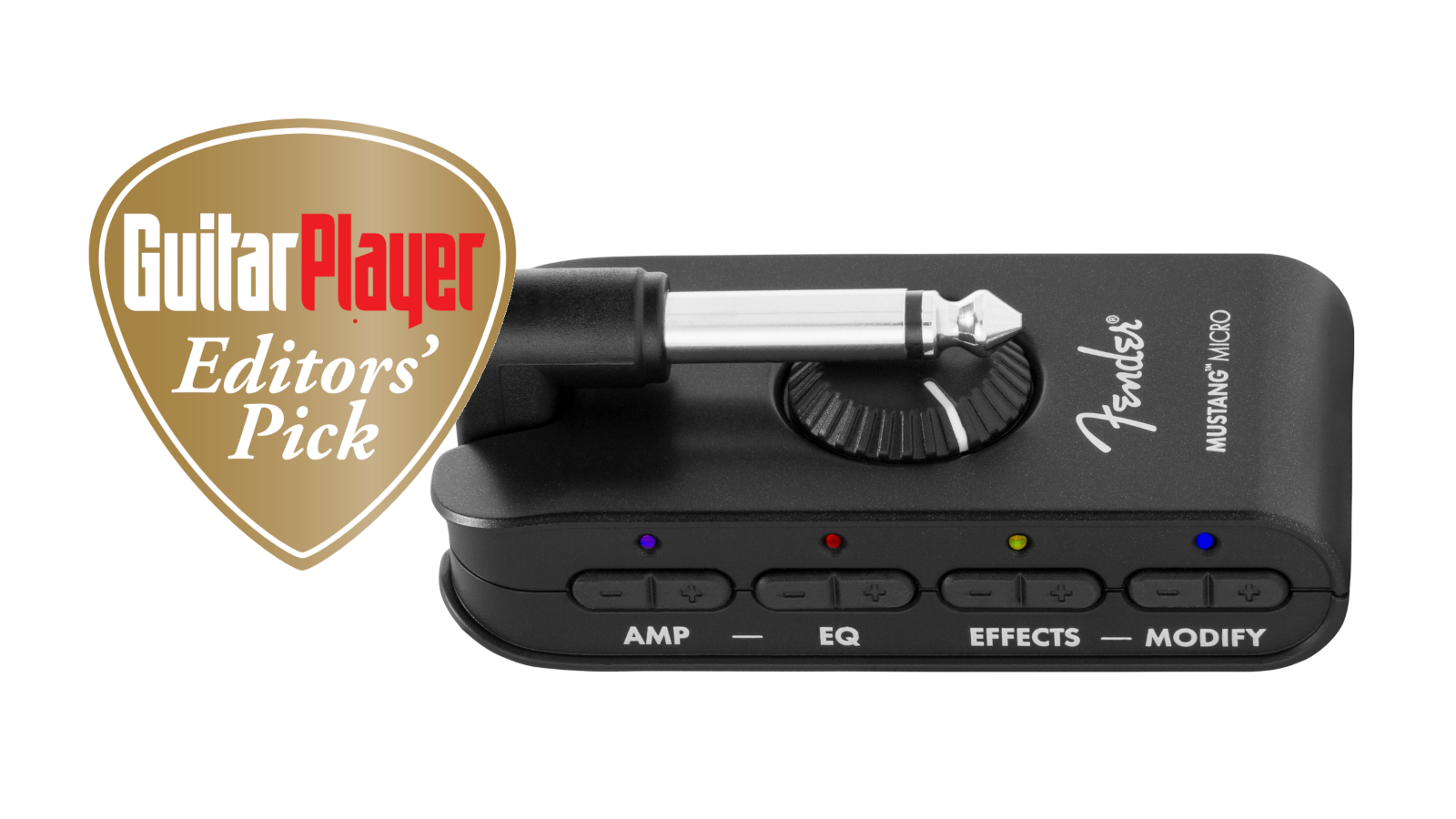GuitarPlayer Verdict
Crammed into a tiny package this miracle of modern engineering has an amazing level of feel and tone.
Pros
- +
Amp-like playing experience in an incredibly compact size
- +
Versatile applications
Cons
- -
None
You can trust Guitar Player.
Miniaturization is the story of the modern age, as devices keep getting smaller and more powerful. Case in point, the Mustang Micro, a very, very small guitar amplifier and effect modeling system that features a selection of tones from the Mustang series modeling amps.
You can plug it directly into your electric guitar jack, connect stereo headphones to its 1/8-inch jack, choose various amp and effect settings, and play for hours.
The unit lets you jam along with tunes from your music library or streaming service through Bluetooth audio from your mobile device, tablet or computer. You can also record your guitar tones with or without a Bluetooth audio stream to your preferred recording system by using Mustang Micro’s USB-C output.
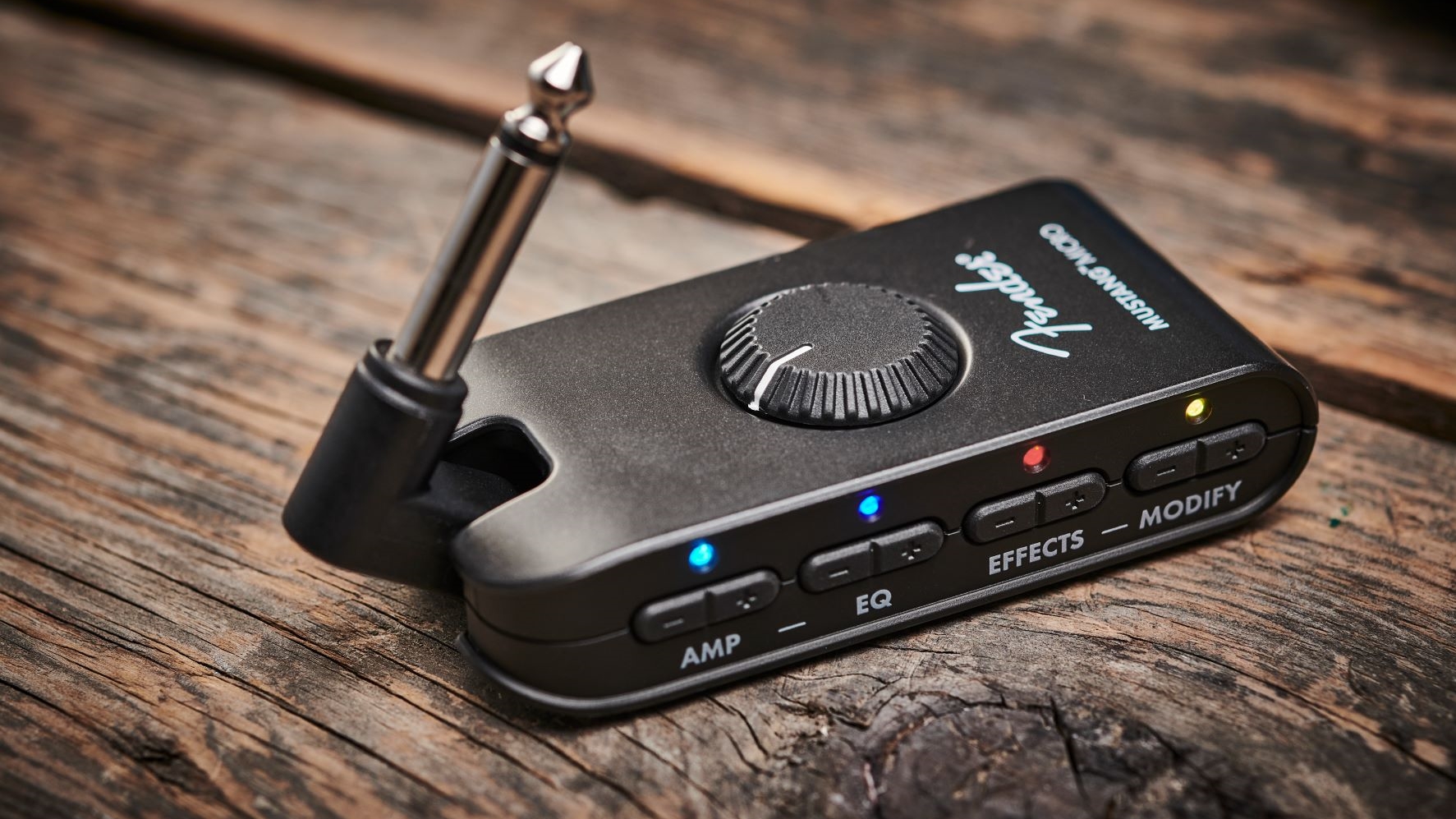
This tiny device offers 12 amp models with a range of clean and dirty tones, 12 effect combinations with some parameter control, adjustable EQ, and a relatively large master-volume wheel that adjusts instrument and overall output level to headphones or earbuds.
You get approximately four hours of continuous play time supplied by a lithium-ion battery that is recharged via USB.
Connecting the Mustang Micro is easy enough. Simply insert it into your guitar’s output with the cleverly designed, 270-degree rotating input plug that allows the device to fit neatly with a variety of guitars and, as we shall see, pedals.
Choosing an amp, effect, parameter or EQ setting is achieved via the small buttons on the side. This proved quick enough once we memorized the settings and their associated colors as listed in the manual (or you could just keep the instructions handy).
All the latest guitar news, interviews, lessons, reviews, deals and more, direct to your inbox!
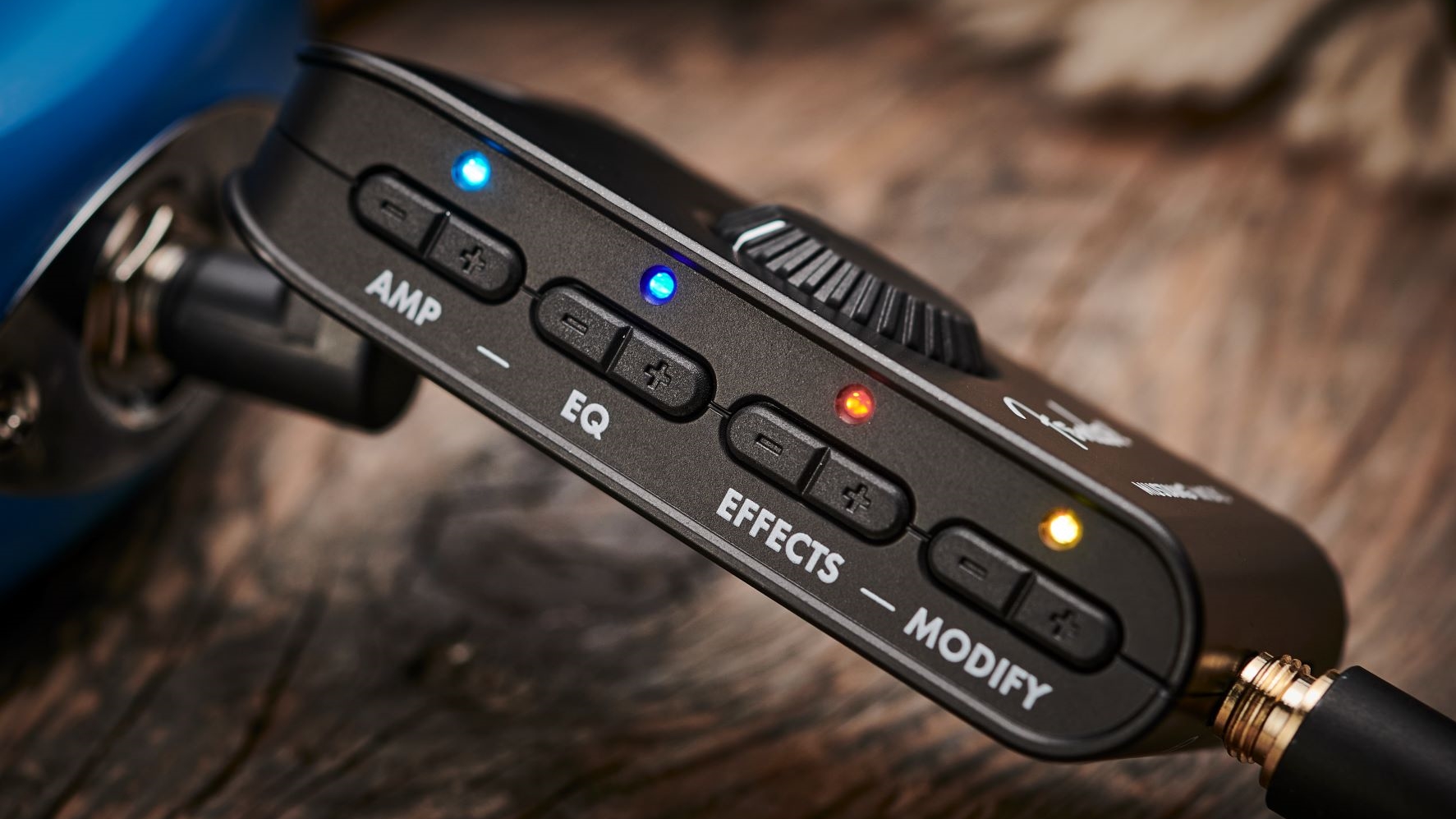
The main amp food groups are all included here. The presets reference the sounds of a ’65 Twin plus a compressor, a ’65 Deluxe, a tweed Twin, a Vox AC30, a ’65 Deluxe driven by an Ibanez TS808 Tube Screamer, a Marshall Super Lead, a Mesa Dual Rectifier, a Fender Bassbreaker, Friedman BE-100 and a Bogner Uberschall.
Effects include room, hall and spring reverbs, both plain and modulated, as well as a few delays and modulators.
Kudos to Fender for ensuring that the options are all musical sounding and useful. We found the sounds fun to use and similar to the experience of playing through an amp, with respect to response to touch and guitar volume control clean-up.
The unit worked well through headphones, but we preferred playing through a DAW. For maximum comfort, we recommend adding an extension to the supplied short USB cable.
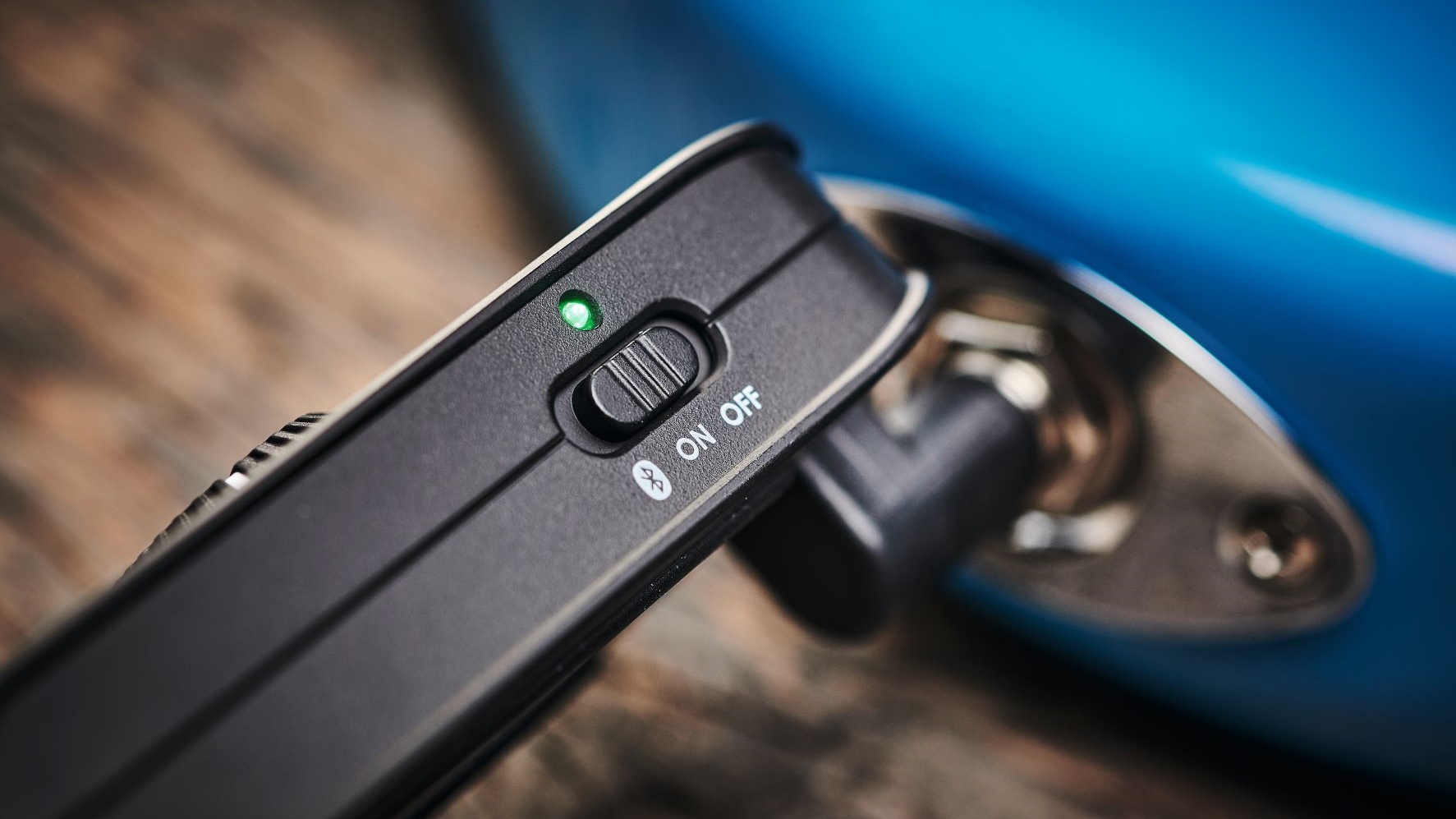
Latency was negligible when using a UA Arrow interface as the output to studio monitors.
We were happy to discover that we could also plug the Mustang Micro into the output of a pedalboard, where it responded like an actual amp when driven by analog overdrive and fuzz pedals.
A little post Micro EQ was required to match the tone of plugging directly into the guitar, but it was worth it for the easy access to analog effects.
Whether you use the Fender Mustang Micro as a practice tool, for playing along with tunes streaming via Bluetooth, or as a quick and easy audio interface for recording your guitar, prepare to be amazed at the level of feel and tone Fender has crammed into this tiny package.
Does it sound as good as dedicated modeling software or large hardware multi-effects costing many times more? Not quite, but it is nevertheless a miracle of modern engineering and deserves an Editors’ Pick Award.
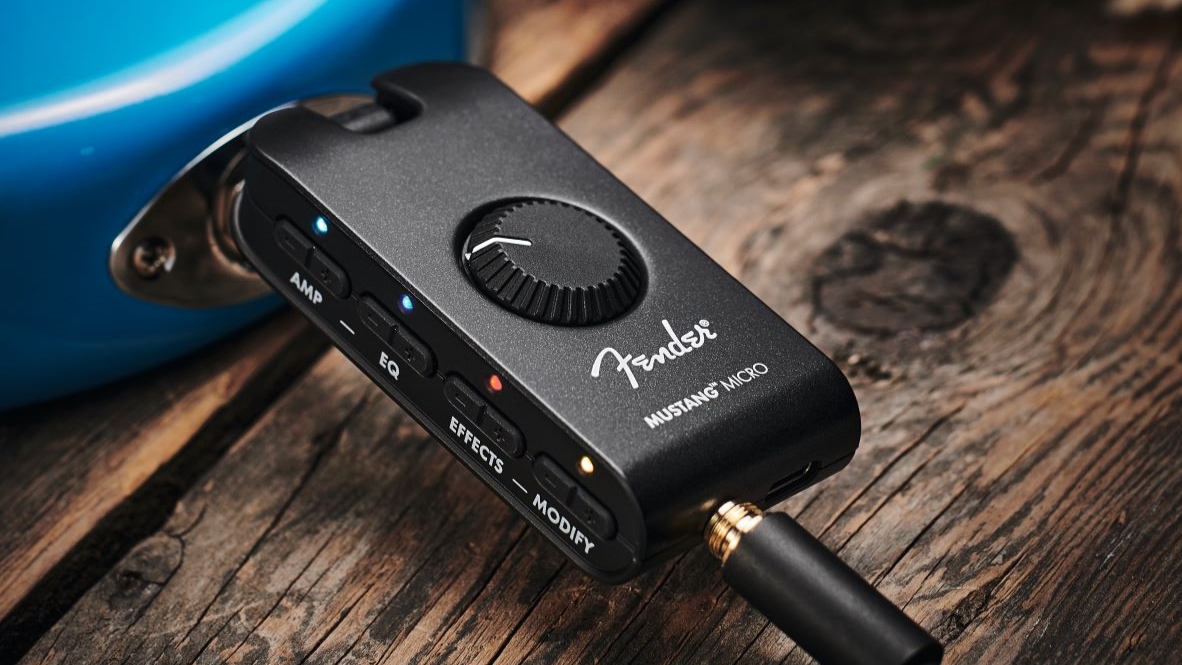
Specifications:
- CONTROLS: Master volume, selector switches for amp, effects, EQ, and parameter modification
- EXTRAS: USB-C connector, headphone input, Bluetooth receiver
- SIZE: 1.5” x 1.13” x 3.15”
- BUILT: China
Visit Fender for more information.
